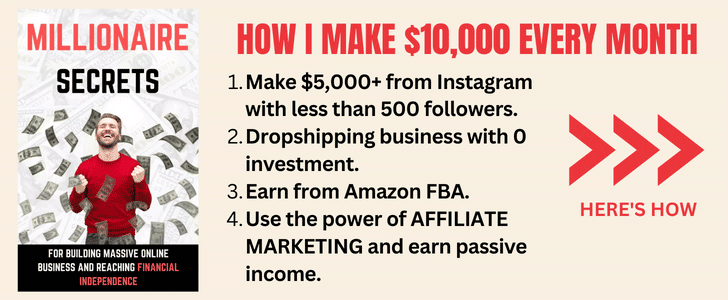Do you still believe that "engaging" content and that's what captivates users and drives traffic? Well, so do 600 million other bloggers in the world. Are you really willing to get stuck in an endless cycle of competing for the same idea? Why?
Say goodbye to those catchy headlines and engaging storytelling techniques. What you want to do is forget engaging, forget “audience”, and forget what anyone is looking for. Let yourself find what you want naturally, and take it from there - that'll be a great start.

Why I'm Not Trying to Connect with You
Yeah, you read that right. This isn’t one of those fluffy, over-the-top pieces begging for your time. I’m going to lay it out straight: this is about making content that doesn't click with anyone. It's the art of "meh" in content form.
So why would someone write content that doesn't aim to connect with the reader? Maybe it’s a statement. Maybe it’s sheer laziness. Maybe it’s Tuesday. Who knows? And honestly, who cares?
Here's a guide to creating the most lukewarm, shoulder-shrugging content out there.
The Art of Boring Titles
Alright, let's get one thing straight: Not everything needs to shine, sparkle, or grab attention. Sometimes, the goal is just to exist without making waves. Enter the realm of boring, generic titles. It’s a way to show your "I couldn’t care less" attitude with pride.
So you want to perfect the bland title, huh? Maybe you're tired of the endless charade of trying too hard. Maybe you just want to blend into the vast sea of content. Whatever your reasons, here's how to craft those snooze-worthy titles.
- Yawn-Worthy Word Choices: Think of the most overused, tired words in your vocabulary. Now use them. "Things," "Stuff," "Some," "Article," "Post"... you get the gist. The more worn-out and generic, the better.
- Avoid Specifics: Who needs to know what the content is really about? Certainly not your readers. Keep them in the dark. "Some Event That Happened," "A Place I Visited," or "Thoughts On A Thing." The vaguer, the better.
- Keep It Short: Lengthy titles hint at the effort. We don’t want that. But we also don't want it to be catchy. So, something like "A Post." will do.
- Don't Ask Questions: Questions engage the reader, making them think. Do we want that? No. Stay declarative. State the painfully obvious.
- Avoid Adjectives: Descriptive words give flavor, color, and emotion. We're not running a spice shop here. Keep it bland. No "Amazing," "Fantastic," or even "Mediocre." Just plain, unseasoned tofu.
- Number Games? Nope.: "10 Ways to Do a Thing." Nah. Numbers hint at structured, value-driven content. Let’s skip that.
What's the big idea behind all this? Maybe it's a rebellion against the constant noise. Maybe it's just a laziness level that's evolved into its own art form. But creating a boring title is about more than just not caring. It’s about challenging the status quo, which screams, "Look at me! Validate me!" It's a quiet nod to all those who just want to stay ordinary.
So, the next time you're about to craft a title, stop. Don't think about what will make people click. Think about what won’t. And in that defiant act of underwhelming blandness, you might just find a weird sense of satisfaction. Because let's be honest: not everything needs to be a masterpiece. Some things can just be "Things About Stuff." And that's perfectly fine.
Be Vague
You know, that place where everything's fuzzy, details are a mere suggestion, and clarity is some mythical beast we've all heard of but never actually seen. Welcome to the world of being deliberately, and maybe a tad defiantly, vague.

Why bother being specific? Here's a thought: don't. Specifics are for people who care about offering clear information, and that’s just not our vibe here. So, how does one become a true master of vagueness?
- Generalize Everything: Talking about a historical event? It happened sometime in the past, in some parts of the world, involving some groups of people. Books? Yeah, they're those things with pages. You know what I mean.
- Adjectives are Overrated: Words that describe stuff? Toss them out. "Big" event, "interesting" person, "colorful" painting. What's the point? Everything's just "something," anyhow.
- Time? What’s That?: Dates, times, chronology – who needs that headache? It happened some time ago, or maybe it'll happen soon. Who’s to say?
- Places are Just Places: Paris, New York, that cafe around the corner? Nah. It’s all just "somewhere." Heck, if you’re feeling particularly vague, even “place” is too specific. Just say "it happened."
- People? More like Person-Blurs: Talking about famous figures or notable personalities? Not here. Just reference “some guy” or “that woman.” Specific names? Forget it.
- Avoid Real Data: Numbers, percentages, stats? Throw them in the vague bin. If you’re feeling cheeky, just hint that there might be some numbers somewhere that back up whatever it is you’re not quite saying.
Now, you might wonder, what's the joy in this? Here’s a more appropriate question: Why even bother asking? Because isn't the pursuit of not caring, not informing, and not specifying its own kind of bliss?
The vague approach laughs in the face of the detail-obsessed world. It’s for the brave souls who dare to be ambiguous in an age that demands razor-sharp clarity. So, the next time someone expects you to be precise, just give them the classic, "You know, it's a thing about stuff." Trust me, they'll get the point. Or not. Whatever.
Passive Voice

Why take charge of a sentence? Let the sentence happen without anyone doing anything. It was done by someone, somewhere, for some reason. Welcome to the art of letting things happen without anyone being held accountable.
- Why Blame When You Can Avoid?: Someone broke the vase? Or was the vase simply broken? See the difference? In one, there's blame; in the other, there’s a shrug of “stuff happens.” With passive voice, stuff just... occurs. Magically.
- Action Without Actors: Events occurred. Mistakes were made. Stories were told. By whom? Why even bother with such trivial details? Stick to the events, and let the doers fade into insignificance.
- Taking A Backseat: Do you enjoy letting others take the limelight while you chill in the shadows? The passive voice is your recliner. Sit back, relax, and watch things unfold. Let someone else deal with the specifics.
- Avoiding Accusations: You won’t ruffle feathers when you aren’t pointing fingers. The passive voice is like your neutral, no-confrontation buddy. Documents were lost, not "You lost the documents." Tensions diffused, just like that.
- Ambiguity is Your Friend: Sure, you could be clear. But why? Revel in the mystery. Keep them guessing. An argument was had, desserts were eaten, and decisions were somehow reached. Dive into the cloud of "how" and "by whom" and bask in the foggy beauty of it.
- It’s No One’s Fault, Really: The passive voice is the ultimate non-committal relationship with language. Things were done, or maybe they weren’t. There's no pressure to know or to tell. Commitment? We don’t know her.
Now, if you're still here, maybe you're wondering why anyone would want to be so non-assertive. Or maybe not. After all, everything here was just stated without really clarifying anything. But here's the thing: not everything needs to be a power move. Sometimes, stuff just needs to be said without the grand parade of who said it and why.
So, whether you're avoiding responsibility, being mysterious, or simply can't be bothered, let the passive voice be your guide. Let your sentences just kind of... exist. Undefined, unattributed, and unabashedly vague. Because, in the end, stuff was written. And that's that.
Irrelevant Ramblings (Because Making Sense is Overrated)
Want to talk about cats in an article about space? Go for it. Who's going to stop you? Juxtapose anything you fancy. Keep readers guessing what your point is, or if there even is one.
Welcome to the illustrious world of irrelevant ramblings, where coherence takes a back seat and randomness reigns supreme.
- Why Stick to One Topic?: An article about modern architecture? Why not toss in your thoughts about why cheese smells funny? Logic is a prison. Break free. Talk about polar bears in a discussion about traffic rules. It’s liberating.
- Confuse and Conquer: The more you jump between unrelated topics, the more your reader will question their sanity. One minute they're learning about cloud formations, and the next? Your aunt's obsession with ceramic frogs. Throw them off balance. Keep them on their toes. Or whatever body part you fancy.
- Details? Toss 'Em In: Never mind if they’re related to the main topic. Did you recently discover that snails have thousands of tiny teeth? Perfect. Drop that knowledge bomb in an article about stock market trends.
- Challenge The Status Quo: Just because everyone expects a piece about Shakespeare to be about, well, Shakespeare, doesn't mean you can’t dissect his potential opinions on modern fast food. Did he like fries with that?
- Paragraphs are Just Suggestions: Who said they need to be about the same thing? Start with Renaissance art and end with why you don’t trust geese. It's your world.
- Headings? Make 'Em Mismatched: ‘Benefits of Yoga’ followed by a passionate rant about the price of avocados. Makes perfect sense, right? No? Good.
By now, you might be scratching your head, wondering if there's a point to all this. Well, wondering is good. Or maybe it isn’t. Maybe pineapples make for great hats. Who knows?
In a world that demands logic and linear thinking, choosing to march to the beat of your own, utterly mismatched drum is an act of rebellion. Why cater to the expectations of the masses when you can bamboozle?
If you’re still here, still reading, ask yourself why. Maybe you're intrigued, baffled, or just bored. Whatever the case, thanks for joining this chaotic ride of irrelevant ramblings. If you learned something, that's accidental. If you didn't, well, that was sort of the point. Or was it?
Keep It Predictable
Tropes, clichés, and the same old stuff everyone's heard a thousand times. Why reinvent the wheel when you can just copy what's already been said and done?
Here, originality is not just dead; it's been buried, dug up, and buried again for good measure.
- Tropes are Your New Best Friend: You know that plot twist everyone's seen coming from a mile away? Use it. The brave hero with a tragic past? Oh, please, as if anyone's tired of that.
- Clichés Are Just Awaiting Your Command: "Time will tell." "Every cloud has a silver lining." Bet you rolled your eyes. That's the beauty of it. Why strain your brain when you can recycle these overused gems?
- Been Done Before? Do It Again: There's a saying, "If it ain't broke, don't fix it." So if something's been repeated ad nauseam, it's probably because folks are too lazy to ask for something different. Be lazy with them.
- Template Mania: Why bother creating a unique structure for your work when there are templates galore out there? Just fill in the blanks, and voila, you have something almost indistinguishable from a million other things.
- Predictable Endings are the Spice of Life: The boy gets the girl. Good triumphs over evil. Yawn. But hey, it's familiar, it's comfortable, and most importantly, it requires zero effort from your end.
- Trend-riding: See what everyone else is doing and do the same thing. Who cares about being a trailblazer when you can comfortably settle in the middle of the herd?
Next time you're thinking of creating something, don't. Just grab the nearest cliché, trope, or done-to-death idea and roll with it. It's less effort, and frankly, it's what most people expect anyway.
Ignore Feedback

Look, if you wanted their two cents, you would've asked, right? Let's explore the wonderful world of disregarding every bit of input anyone ever dares throw your way.
- Smile and Ignore: Someone took the time to read your work and craft a response? Cute. Give them a noncommittal smile, nod, and promptly forget everything they said.
- Constructive What?: Oh, they're trying to be helpful? That’s sweet. But let's be honest, if you wanted to be better, you'd do something about it on your own terms, not because someone pointed it out.
- The Nod-and-Forget Technique: This is an advanced move. As soon as someone starts with "I think," just nod till they're done, and then continue doing whatever the heck you were doing. The trick is to not actually hear anything.
- Drowning in Compliments: Someone liked your work? Big deal. Everyone's a critic these days. Their praise is probably as shallow as a kiddie pool. Keep that ego in check.
- Suggestions are for Suckers: Oh, they think they can do it better? Hilarious. If they're so great, let them do their own thing. You don’t need their so-called "improvements."
- The Classic Eye Roll: Nothing says "I couldn't care less" like a well-timed eye roll. Use it generously. Throw in a sigh for good measure.
Look, at the end of the day, feedback is just noise. And you? You're on a mission to block out all the noise. Why? Because you can. Because every unsought opinion is just a distraction on your journey to... well, wherever you're heading. So keep those blinkers on and trudge on, champ. After all, no one knows better than you. Right?
Be Repetitive If You Want

repeat yourself like a parrot
Say the same thing over and over. And over. Why? Because nothing says "I really don't care if you're bored" like hammering the same point repeatedly. Let’s talk about being repetitive. Yes, that's right, we're going to discuss repetition. Because why not?
- Beat that Dead Horse: Got a point? Great. Now make it again. And again. Ensure your reader gets it, even if they got it the first three times. You're not here to entertain; you're here to make a point. Multiple times.
- Your Reader Probably Skipped It: Let's face it, they're probably skimming, not actually reading. So, by repeating, you’re just making sure they catch that vital point. At least one of the fifteen times you mention it.
- Variety is Overrated: Who needs a range of vocabulary when you can use the same word or phrase in every sentence? Synonyms? Who needs them?
- Make it a Mantra: If something's worth saying, it's worth turning into a chant. Let them meditate on your words. Over. And over. And...you get it.
- Fill that Word Count: Need to stretch out an article? Repetition is your trusty ally. Why strain for new content when you can just regurgitate the old?
Being repetitive is an art. Or maybe it isn't. But who cares? The point is, when you repeat things, it's clear that you're committed. Committed to that one thing you keep mentioning. Repeatedly. If they didn't get it the first time, they might get it the tenth. Or they might just leave. But, either way, you've made your point. Many times. Because repetition is... well, you know.

Graphics: Be Irrelevant
So you want to add a graphic to your content? Who cares if it fits? Throw in a photo of a pineapple next to your article about car engines. Logic is overrated. Let's break down the liberating act of haphazardly slapping graphics onto your work.
- Mismatched Majesty: Got a serious topic? Lighten it up with a cartoon of a dancing frog. Who set these stupid rules about "relevant imagery" anyway?
- Quantity Over Quality: Why use one good image when you can use twenty mediocre ones? Fill up that space. Make it cluttered. Overwhelm the eyes.
- Random is Right: Why go through the tedious process of choosing the 'perfect' graphic when the first one you stumble upon will do just fine? Time is money, and you're not here to waste it.
- Resolution, Shmesolution: Blurry pics? Who cares? It's not an art gallery. If readers can squint and roughly make out what it is, you're golden.
- Consistency is for the Weak: Mix and match. Black and white next to neon colors. GIFs next to static images. Make it a mishmash of chaotic brilliance.
- Baffle Them with Your Choices: Let readers question your sanity. Why IS there a photo of a llama in an article about stock markets? Let them ponder. You're just avant-garde.
Listen, rules are for sheep. Be the wolf. The wolf that doesn't give a hoot about matching graphics to content. Because, let’s be brutally honest, you've got better things to do than hunt for the 'right' image. Whatever that means.



I’m not sure if I should really believe everything in this post. But I get your point. There are loads of people out there who say “engage with your audience, talk to your followers” and all but it seems like they don’t even have many followers themselves.
It’s like they’re giving advice without knowing what it’s really like. Your post made me think about this, and I appreciate it. Thanks for sharing. I was laughing at the beginning but you have a point.
Hi, thanks for your comment. No, don't believe everything that anyone says!
Lots of people mention having an audience, but the reality is it’s mostly just big influencers or companies that do.
You need super rare talents to get lots of followers. So, maybe learning about marketing isn’t worth it for most of us. Instead, I think I should focus on getting better at something special.The real tricky part is figuring out what that special thing is for me.
Thanks for your comment, Benson. I agree, the trickiest part is what you can do that others can't, and there is barely anything left for anyone.